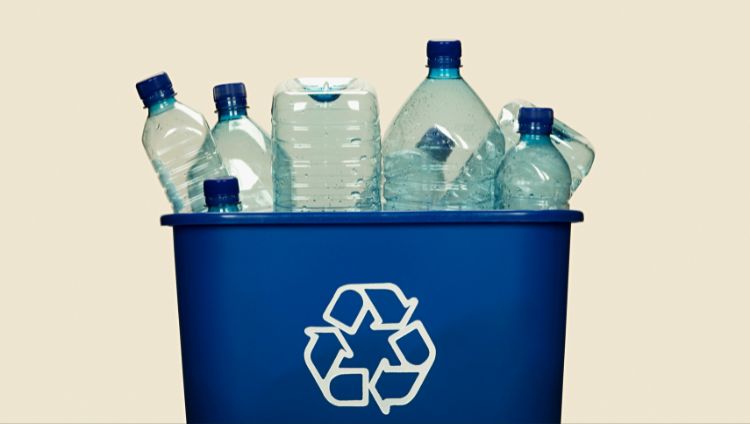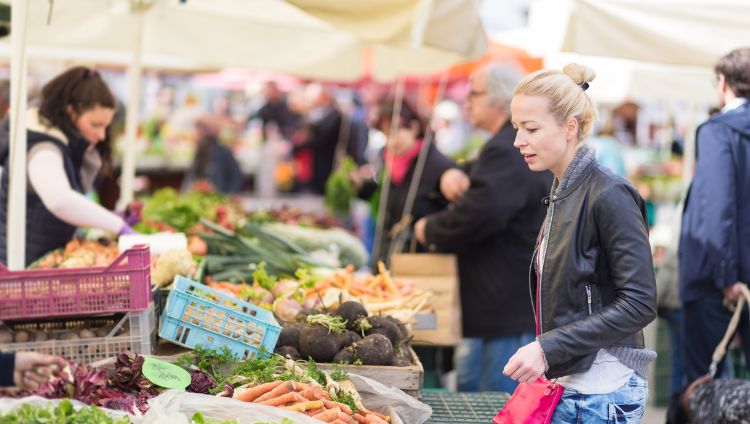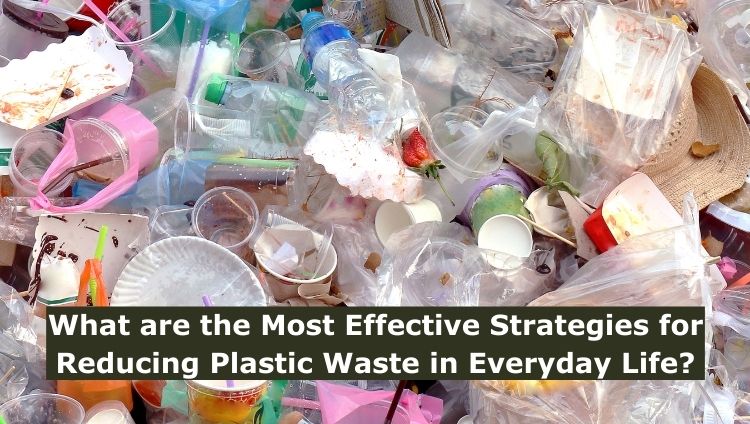We’re aware that plastic has some good qualities, like being cheap, easy to make, flexible, and easy to find. However, it’s now evident that there’s a big problem with plastic waste harming our environment.
To give you an idea, a whopping 12 million tonnes of plastic end up in the ocean each year, and even tiny pieces of plastic, called microplastics, have been found deep in the Arctic ice.
So, what can we do to solve this issue? In this article, we’ll talk about the What are the most effective strategies for reducing plastic waste in everyday life?
Be a Good Recycler (and Do It Right)
Recycling plays a crucial role in helping our planet by decreasing the amount of plastic that ends up in landfills. Although recycling systems aren’t perfect, they are far better than tossing everything into one bin. Recycling guidelines can differ depending on the area, but there are three general principles that apply almost everywhere:
1. Recycle clean bottles, cans, paper, and cardboard.
2. Do not include food or liquids in your recycling.
3. Avoid placing loose plastic bags or recyclable items inside plastic bags.
Related Post: What does Waste Management do with Recycling?

Say No to One-Time Use Plastics
Consider Different Packaging
Small business owners can improve their environmental impact by selecting alternative packaging options. Whether you’re managing a café or an Etsy shop, opting for eco-friendly materials such as paper and cardboard can have a significant effect.
For those in the food industry, enrolling in courses like the “Introduction to Sustainable Practices in Food Service” from the International Culinary Studio can be very beneficial.
While plastic-like packaging may sometimes be necessary for preserving items, bioplastics present a promising alternative. Made from renewable materials like cellulose, bioplastics typically biodegrade more quickly than traditional plastics.
Learn how to reduce waste with simple changes to your business practices.
Conduct a Waste Check
A waste check is a straightforward way to gauge your waste production by reviewing what you consistently throw away. Often, we discard items without much consideration, so this method helps us recognize our waste output.
It also highlights alternatives for items that are frequently discarded. For instance, if you notice a lot of disposable coffee cups in your trash, switching to a reusable cup might be a good option.
Similarly, if you find many empty crisp packets, you could opt for larger packs or look for recyclable packaging. Additionally, programs like Terracycle can help with recycling crisp packets.
Choose Reusable Alternatives
We mentioned this earlier when talking about single-use plastics, but one of the best ways to reduce your reliance on disposable plastic items is by finding reusable options. They don’t need to be fancy bamboo products; even carrying regular metal utensils in your bag or using an old plastic water bottle for work can make a significant difference.
You can even discover alternatives for items like clingfilm – learn how to make your own eco-friendly, zero-waste clingfilm in our open course. To delve deeper into sustainable choices, consider joining our Exploring Sustainable Living and Loving with Mogli course by Tommy Hilfiger.
ou can also explore ways to organize a community cleanup event with rented dumpsters to reduce wast

Cultivate Your Own Food
Undoubtedly, numerous fruits and vegetables come wrapped in plastic when purchased from supermarkets. To address this issue and foster self-reliance, why not explore the possibility of growing your own produce?
With guidance from our course “How to Cultivate Healthy Plants” offered by Gardeners World Magazine, you’ll soon find yourself tending to a thriving garden of herbs and vegetables.
Shop at Local Markets and Low-Waste Stores
If cultivating your own food isn’t feasible, consider sourcing your groceries from nearby markets and zero-waste retailers. Depending on your location, purchasing from markets may prove to be either more economical or pricier than supermarket shopping, so conducting prior research is advisable to determine the most suitable option for your budget.
While zero-waste stores may entail higher costs, they offer a great selection of dry goods such as pasta, rice, legumes, and nuts. Typically, customers bring their own containers and fill them as needed, minimizing waste generation.

Frequently Asked Questions
Why is reducing plastic waste important?
By using `effective strategies for reducing plastic waste is crucial because plastics can take hundreds of years to decompose, causing harm to the environment, wildlife, and human health. By reducing plastic waste, we can mitigate these negative impacts.
How can I start reducing my plastic waste today?
You can begin by using reusable bags, bottles, and containers, avoiding single-use plastics, and recycling properly.
Small changes in daily habits can make a big difference.
What are some easy ways to cut down on single-use plastics?
Some simple steps include using a refillable water bottle, bringing your own coffee cup, using cloth shopping bags, and opting for products with minimal plastic packaging.
Are there any alternatives to plastic products that I can use?
Yes, you can explore alternatives such as glass containers, stainless steel straws, and cloth produce bags.
Many eco-friendly options are available.
How can I encourage my community to reduce plastic waste?
You can start by organizing clean-up events, participating in local recycling programs, and educating others about the importance of reducing plastic waste.
Conclusion:
Reducing plastic waste in everyday life is not only achievable but also essential for the well-being of our planet.
By adopting simple yet effective strategies for reducing plastic waste such as using reusable products, avoiding single-use plastics, and supporting local markets and low-waste shops, we can make a significant difference.
Plastic waste harms our environment and wildlife, but with conscious choices and a commitment to change, we can minimize our plastic footprint and contribute to a cleaner and more sustainable future for all.
Remember that every small action counts, and together, we can have a big impact on reducing plastic waste in our daily lives.
To know more about our company, you can visit the ‘About Us‘ section whenever you want. If you have any questions, just contact us anytime!


